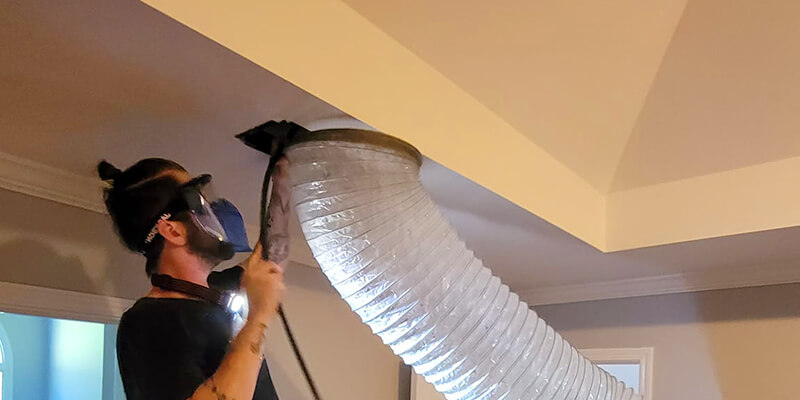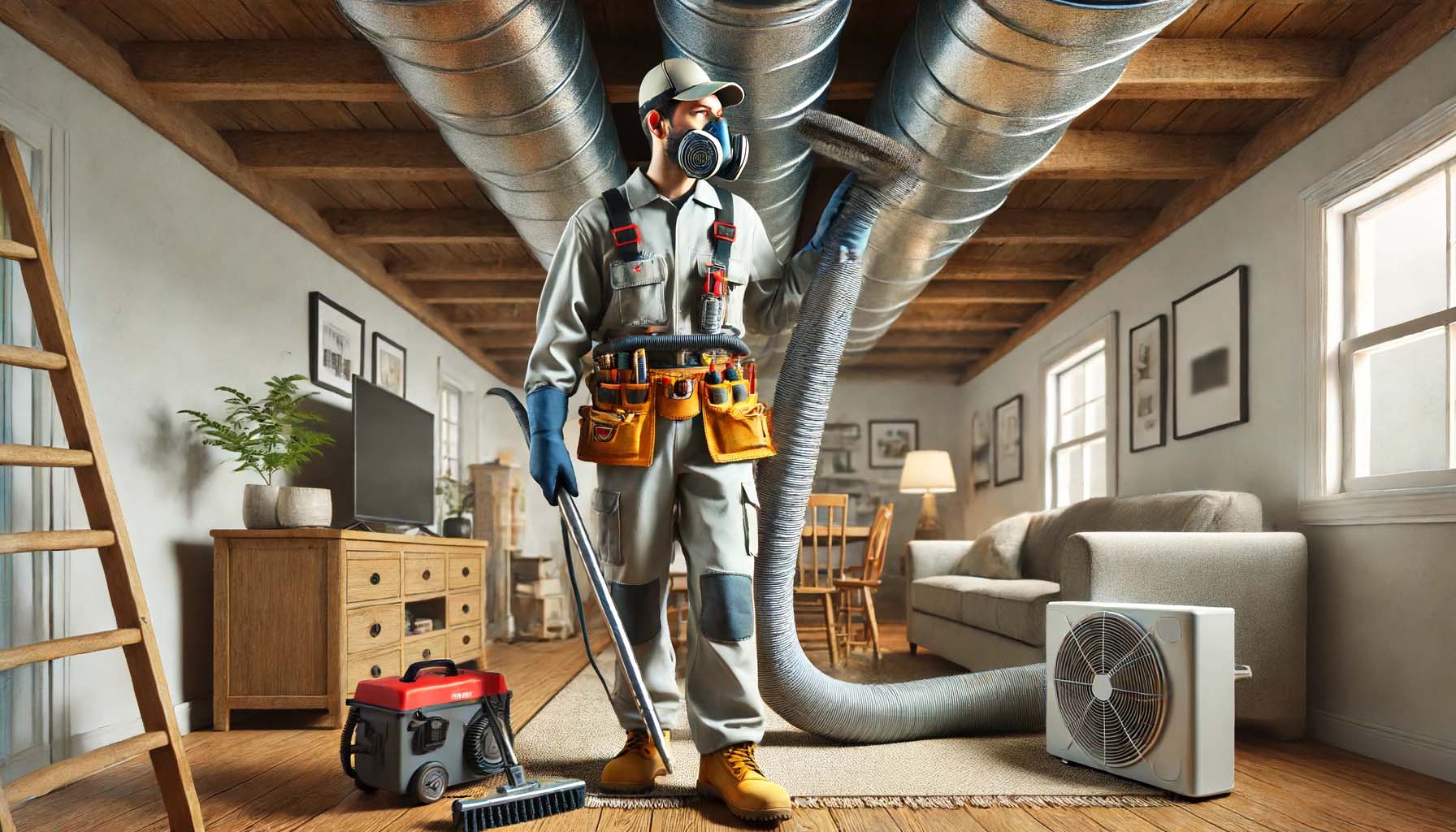When it comes to ensuring comfort in residential and commercial spaces, the importance of a reliable HVAC system cannot be overstated. A term you’ll often come across is a split system HVAC. But what is a split system HVAC? In this article, we’ll delve into the details of this technology and explore why it’s a preferred choice for many homeowners and business owners.
In the simple terms, a split system HVAC consists of two main components: an indoor unit and an outdoor unit, connected by refrigerant lines. This setup allows for efficient cooling and heating, making it incredibly effective for both small and large spaces.

Understanding Split System HVAC
Components of a Split System HVAC
A split system HVAC comprises two major parts. The indoor unit includes the air handler and evaporator coil, while the outdoor unit houses the compressor and condenser coil. These units work together to regulate the temperature, and they’re connected by copper refrigerant tubing.
Indoor Unit Features
The indoor unit has several important components, like the evaporator coil, air handler, and blower. These parts work together to absorb heat from the indoor air and then circulate the cooled air back into the room. For more detailed information on maintaining this unit, you can check our guide on how to flush HVAC system
Outdoor Unit Features
The outdoor unit typically includes a compressor and a condenser. These parts play a crucial role in releasing the absorbed heat into the outside air. The compressor is especially critical as it helps to circulate the refrigerant between the indoor and outdoor units. To know more about how you can care for these components, read our article on how to seal HVAC system
Why Split System HVAC is a Preferred Choice
Energy Efficiency
One of the primary reasons homeowners and business owners opt for split system HVAC is its energy efficiency. These systems use advanced technologies to ensure minimal energy wastage, thus reducing electricity bills.
Cost-Effective Installation
Compared to traditional HVAC systems, split systems are generally more affordable to install. The absence of extensive ductwork simplifies the installation process, making it quicker and less labor-intensive.
Improved Air Quality
An added benefit is the enhancement of indoor air quality. Split systems often come with advanced filtration systems that can effectively remove pollutants from the air. For those interested, we have a detailed article on what is residential duct cleaning that can provide more insights.
Flexible Zoning
These systems provide the flexibility to be customized for specific comfort needs in different areas. This zoning capability allows you to set different temperatures for different rooms, thus enhancing comfort and optimizing energy use.
Maintenance and Care for Split System HVAC
Routine Inspection
Regularly inspecting your HVAC system can help identify potential issues before they become significant problems. Routine checks should include both the indoor and outdoor units.
Cleaning Ductwork
Cleaning the ductwork is crucial for the efficiency of your HVAC system. For more detailed guidance, check out our article on duct cleaning.
Filter Replacement
Changing the filters regularly ensures that your system operates at peak efficiency. Dirty or clogged filters can significantly reduce air quality and system performance.
Professional Servicing
While homeowners can handle basic maintenance, it’s advisable to have professional service your system periodically. This ensures that all components are in good working condition and any potential issues are addressed proactively.
Common Issues and Troubleshooting
Temperature Imbalances
Sometimes, homeowners might experience uneven temperatures across different rooms. Often, this is due to issues with the zoning system or blocked vents.
Noisy Operation
If your HVAC system is making unusual noises, it might indicate problems with the compressor or loose components in the outdoor unit. Immediate attention can prevent more significant issues down the line.
Reduced Efficiency
Over time, an HVAC system may lose efficiency due to factors like refrigerant leaks or wear and tear. Regular maintenance can help in mitigating these issues.
For more tips on troubleshooting, you can read our article on how to seal HVAC system
Environmental Impact
Eco-Friendly Refrigerants
Modern split systems use eco-friendly refrigerants that have minimal impact on the environment. This move is in line with regulations aimed at reducing ozone depletion and global warming.
Energy Conservation
The energy efficiency of split systems means that they use less power, which contributes to lower greenhouse gas emissions. This makes them an excellent choice for eco-conscious homeowners and business owners.
Cost Considerations
Initial Investment
While the initial cost of a split system HVAC might seem high, it’s essential to consider the long-term savings on energy bills and maintenance costs.
Long-Term Savings
The energy-efficient nature of these systems means that users will save money in the long run. The reduction in electricity bills and minimal maintenance costs contribute to overall cost-effectiveness.
Future Trends in Split System HVAC
Smart Technology Integration
The integration of smart technology is a growing trend. Features like remote control through smartphones and intelligent thermostats are becoming increasingly common.
Enhanced Efficiency
Ongoing research and development are focused on enhancing the efficiency of split systems further. Innovations like variable refrigerant flow and advanced inverter technology are making these systems more efficient and versatile.
Conclusion
Understanding what is a split system HVAC can significantly impact your decision-makin g when it comes to choosing an HVAC system. These systems offer tremendous benefits, including energy efficiency, cost savings, and improved air quality. Whether you’re a homeowner or business owner, investing in a split system HVAC is a decision that can provide long-term comfort and savings.
g when it comes to choosing an HVAC system. These systems offer tremendous benefits, including energy efficiency, cost savings, and improved air quality. Whether you’re a homeowner or business owner, investing in a split system HVAC is a decision that can provide long-term comfort and savings.
FAQ
What is the lifespan of a split system HVAC?
A well-maintained split system HVAC can last anywhere from 15 to 20 years, depending on usage and maintenance practices.
Can I install a split system HVAC myself?
While it’s technically possible, it’s highly recommended to have a professional install your split system HVAC to ensure optimal performance and avoid potential issues.
How often should I service my split system HVAC?
It’s advisable to have your system serviced at least once a year. Regular servicing can help identify potential issues early and ensure efficient operation.
For more information on maintaining your HVAC system, read our article on air duct cleaning.